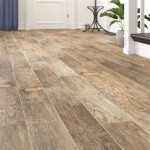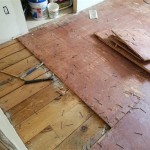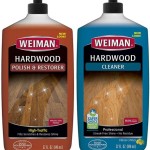Engineered Wood Flooring For Basement
Engineered wood flooring is a popular choice for homeowners who want the look of hardwood flooring without the high cost. It is also a good option for basements, as it is more resistant to moisture and humidity than solid hardwood flooring. Engineered wood flooring is made up of a top layer of real wood veneer that is bonded to a core of plywood or other material. This makes it more stable and less likely to warp or buckle than solid hardwood flooring.
When choosing engineered wood flooring for your basement, there are a few things to keep in mind. First, you will need to choose a type of wood that is resistant to moisture and humidity. Some good options include oak, maple, and hickory. You will also need to choose a finish that is designed to protect the floor from moisture, such as a polyurethane or wax finish.
Once you have chosen the right type of engineered wood flooring, you will need to install it properly. It is important to make sure that the subfloor is level and dry before installing the flooring. You will also need to use a vapor barrier to protect the flooring from moisture. If you are not sure how to install engineered wood flooring, it is best to hire a professional.
Engineered wood flooring is a beautiful and durable option for basement flooring. It is easy to care for and can last for many years. If you are looking for a flooring option that will add warmth and style to your basement, engineered wood flooring is a great choice.
Benefits of Engineered Wood Flooring for Basement
There are many benefits to choosing engineered wood flooring for your basement. Some of the benefits include:
- Durability: Engineered wood flooring is more durable than solid hardwood flooring, making it a good choice for high-traffic areas such as basements.
- Moisture resistance: Engineered wood flooring is more resistant to moisture and humidity than solid hardwood flooring, making it a good choice for basements that are prone to flooding or moisture problems.
- Stability: Engineered wood flooring is more stable than solid hardwood flooring, making it less likely to warp or buckle.
- Easy to install: Engineered wood flooring is easy to install, even for beginners.
- Affordable: Engineered wood flooring is more affordable than solid hardwood flooring, making it a good option for budget-minded homeowners.
How to Choose Engineered Wood Flooring for Basement
When choosing engineered wood flooring for your basement, there are a few things to keep in mind. Some of the things to consider include:
- Type of wood: The type of wood that you choose will affect the durability, moisture resistance, and stability of the flooring. Some good options for basement flooring include oak, maple, and hickory.
- Finish: The finish that you choose will protect the flooring from moisture and wear. Some good options for basement flooring include polyurethane and wax finishes.
- Installation: If you are not sure how to install engineered wood flooring, it is best to hire a professional.
Conclusion
Engineered wood flooring is a beautiful and durable option for basement flooring. It is easy to care for and can last for many years. If you are looking for a flooring option that will add warmth and style to your basement, engineered wood flooring is a great choice.
The Best Wood Flooring For Basements Carlisle Wide Plank Floors

Using Engineered Wood Flooring In Basements Mansion Hill Custom Floors

The Best Wood Flooring For Basements Carlisle Wide Plank Floors

4 Of The Best Options For Basement Flooring In Your Home Reallyfloors America S Est Hardwood

What Kind Of Flooring Should I Use To Finish My Basement Ozburn Hessey

Wood Flooring In The Basement

What Is The Best Flooring For Basements Get Pros And Cons

The Best Flooring Options For Your Basement From Forest Llc

The Best Wood Flooring For Basements Carlisle Wide Plank Floors

What Is The Best Flooring To Put On A Concrete Basement Floor








